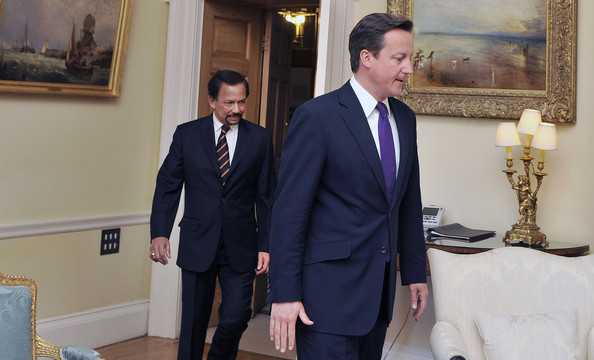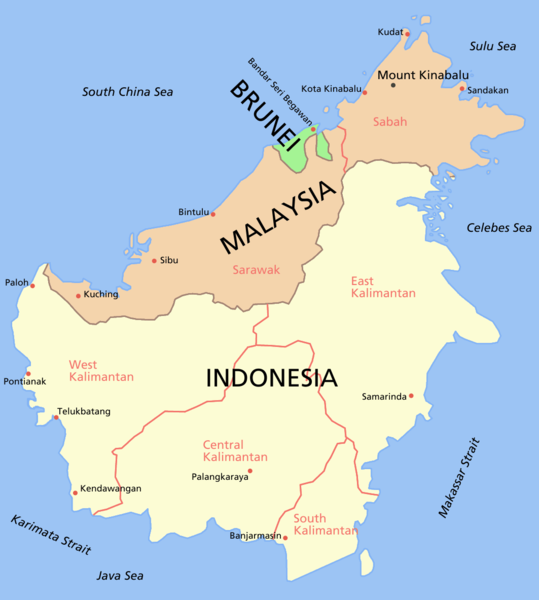Generally speaking, in the world of foreign affairs, even in east Asia, no one really thinks much about Brunei. ![]()
It’s a tiny sultanate of just over 412,000 people on the coast of Borneo, an island that’s otherwise shared by Malaysia and Indonesia. Generally speaking, the population isn’t unlike that of the rest of Malaysia — it’s around 66% ethnic Malay and 11% ethnic Chinese.
But for historical and governance reasons, the historical sultanate was never subsumed into Malaysia, either during or after British colonial rule. Today, it has sufficient oil and gas deposits (which account for around 90% of its GDP) to make it one of the wealthiest countries in the world, on a per-capita basis. Think of it as southeast Asia’s version of Qatar, or a bizzaro Singapore, with resource-based wealth instead of finance and services.
Its sultan, Hassanal Bolkiahhe, who has ruled the country as essentially his own personal fiefdom since his coronation in 1967 (17 years before Brunei received its full independence from the United Kingdom), and whose personal wealth is estimated at $20 billion, announced in October 2013 that his government would introduce shari’a law, and the new stringent Islamic laws began to take effect today. Bolkiahhe, who has limited press freedom and outlawed political parties in Brunei, simultaneously serves as the country’s prime minister, finance minister and defense minister.
But as it begins to transition toward a repressive version of shari’a, the world is certainly paying attention to Brunei now — and largely condemning the draconian nature of its new criminal penalties.
Under the new laws, Brunei has criminalized insulting the prophet Mohammed, failure to attend Friday prayers, alcohol use and extramarital pregnancy, and strengthened punishments for violating those and other laws. Furthermore, a conviction for sodomy is now subject to death by stoning; as the shari’a regime gradually takes effect, a conviction for theft will eventually be subject to amputation.
Though neighboring Malaysia and Indonesia are known for their relatively relaxed Muslim societies, which feature greater social and religious tolerance than many Middle Eastern countries, Brunei has always been significantly more conservative — alcohol, for example, was always technically forbidden, and shari’a law played a role in some civil arrangements among Muslims, including marriage. But the new push for shari’a covers far more ground, leading to condemnation from the United Nations and other international human rights groups:
The UN’s human rights office said this month it was deeply concerned about the changes, adding that women typically bore the brunt of punishment for crimes involving sex.
“It’s a return to medieval punishment,” said Phil Robertson, deputy Asia director for Human Rights Watch. “It’s a huge step back for human rights in Brunei and totally out of step with the 21st century.”
Problematically, only about two-thirds of Brunei’s residents are Muslim — 13% of the population is Buddhist and 10% is Christian. Though shari’a technically applies only to Brunei’s Muslims, there are obvious concerns among the country’s non-Muslims and among many of the British and other multinational corporations that do business there.
That could put British prime minister David Cameron (pictured above, with Brunei’s sultan) in a tough spot, because of the unique relationship between the United Kingdom and Brunei. Continue reading Will the UK continue its military support for Brunei’s shari’a regime?

